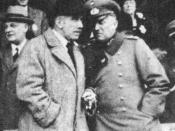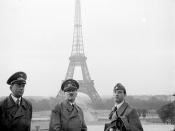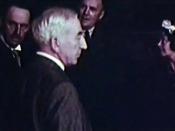The nineteen thirties proved to be a decade of turmoil politically, economically, and socially in Germany. While the German government continued to be one of disorder and confusion throughout this time, January 1933 is a principle period to focus on when studying the turbulence of the country's government. The thirty days included in this month are a primary target time span to center on in order to understand Adolph Hitler's rise to power. Many men, and specifically Kurt von Schleicher, played paramount roles politically in regards to Hitler's rise to power in the nineteen-thirties.
Kurt von Schleicher played an important role in German politics throughout World War I and on into the uproar in the later thirties. By the spring of 1932, Schleicher had become a close advisor to President Hindenburg. "A member of the minority nobility of western Germany rather than of the Junker aristocracy of the East that predominated in the upper echelons of the office corps, Schleicher had nevertheless enjoyed a rapid rise as a career officer".
As Schleicher's political career continued to rise, as he was regularly given tasks that included issues related to defense and transportation. His reputation heightened with his title of defense minister under Chancellor Franz von Papen.
From an outsider's view of the German government during this time, one might see an intricate working and respectable institution; however, there was a great deal of chaos and disorder within the internal operations. President Hindenburg continued to support Papen. Papen could make decisions as well as take actions and have a confident feeling that the President would support him in those decisions. The support from Schleicher however, was not nearly as strong if it existed at all. (p.18) Both Papen and Schleicher took active measures against each other with intentions of politically...


